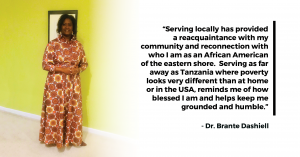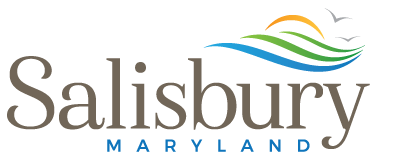
Tell us a little bit about your journey to a doctorate degree in education? Did you always want to pursue education as a career?
My journey has been fruitful but has had many challenges. Education is a propriety in my family and has been instilled in me since I was a young child. I had to work very hard to maintain grades from elementary to high school. Most of my foundational years in elementary school were a challenge academically and behaviorally. My first-grade teacher, who happenened to be one of my three African American teachers, told my mother that “I was unable to learn and that I probably would not graduate from high school.” This statement has stayed with me up until now, and has remained within my spirit, but has been a tool to push me forward toward my accomplishments.
I began my journey toward a bachelor’s degree wanting to become a physical therapist, due to the desire to be a part of research to have my dad regain his ability to walk again. He was shot when I was 7 years old and paralyzed (quadriplegic) from that incident. I have always loved working with children and began working in the summers as a day camp counselor for the YMCA as a freshman in college to continue with Wicomico Recreation and Parks for 7 summers while I was completing my undergraduate degree. It was during this time when others saw how well I did serving in this capacity, they said to me many times that “you should be a teacher”, my external response was “no they don’t make enough money,” while my internal response was “I am not smart enough to be a teacher,” and my flashbacks of my first-grade teacher who had traumatized me and basically told my mother that I would be unsuccessful, and I knew I did not want to be her—a teacher.
I obtained a Bachelor’s of Science in Rehabilitation Services from UMES. As I moved from working with day camps I started to work at Maple Shade, working with children who had emotional and behavioral disabilities. I loved this population of children and did well with them. I worked as a residential counselor, then started volunteering at Maple Shade School, and eventually worked part-time as a teacher assistant and other days as a residential counselor.
During this time I realized that God had another plan for my career path. After graduating from UMES, I relocated to work in Northern Virginia for School-Aged Child Care, Fairfax County. While working there I applied for a scholarship with a grant-funded program “Unlocking Futures” at George Washington University to obtain a Masters of Education (concentration: transitional special education) and was accepted. This scholarship also required me to work as a full-time teacher intern at FLOC Learning Center. This internship provided an experience/training with some of the most challenging students in Washington, DC. My adviser Dr. West told me “if I was successful working with these students I could teach anywhere” and she was right!
This experience also planted a seed after discovering Marva Collins while reading books about educators who were successful with a challenging population of students from under-served communities. I realized I wanted to be like her, I wanted to one day open my own school! Fast forward, I got a job as a lecturer at UMES in the Education Department. This experience provided fuel to my passion for education and teaching. While working at UMES I realized I needed and wanted to go to the next level and get a doctoral degree. I began to search for doctoral programs, as well as knew I need a scholarship as I had no one to help pay for college. I got an email from a colleague that had information about a scholarship at The Ohio State University that was seeking minorities, I applied got accepted and moved to the mid-west to begin my journey as a full-time doctoral student. I was the only African American in my cohort. This experience was very challenging while being the furthest I had ever been at the time from home and my support system. I took leave of absence after my first year and ended up finishing my Doctoral Degree with Nova Southeastern University, Florida. Soon after graduation, I was hired overseas in Dubai, United Arab Emirates, as Chair of the Education Division at Higher College of Technology, Women’s College.
You do a lot of local volunteer work, as well as volunteer in places as far away as Tanzania. Why is it important to give back on a global scale as well as locally?
God has a purpose for all of us and I know he has a purpose for me. So while walking into my purpose and maintaining balance in my life, it is important for me to serve others, which fulfills my spirit. Serving locally has provided a reacquaintance with my community and reconnection with who I am as an African American of the eastern shore. Serving as far away as Tanzania where poverty looks very different than at home or in the USA, reminds me of how blessed I am and helps keep me grounded and humble. Serving internationally also allows others to see who I am as an American, African American, and woman because their perceptions and experiences at times bring lots of untruths and stereotypes, I always pray that my time with them will bring a more clear and positive depiction of who I am on various levels.
You are a member of the Wicomico Complete Count Committee for the upcoming 2020 Census. What are the top three things that people should understand about the census?
As a Co-Chair of the Complete Count Committee for Wicomico the top three things others should understand about the Census 2020 are:
1) It provides data that brings federal and state funding for the betterment of our community. The census provides critical data that lawmakers, business owners, teachers, and many others use to provide daily services, products, and support for you and your community.
2) If you are resident here your voice matters and we need you to be counted, it is confidential.
3) The results of the census also determine the number of seats each state will have in the U.S. House of Representatives, and they are used to draw congressional and state legislative districts.
In what ways do you personally celebrate black history month?
I take time out to watch documentaries that cover aspects of my history that I have not been exposed to such as “Who Killed Malcolm X?” I attend various events that celebrate African Americans’ greatness and include days of my meditation and reflection to reexamine myself and my purpose. This ensures that I am honoring my heritage and ancestors in my words, actions, and servitude.

